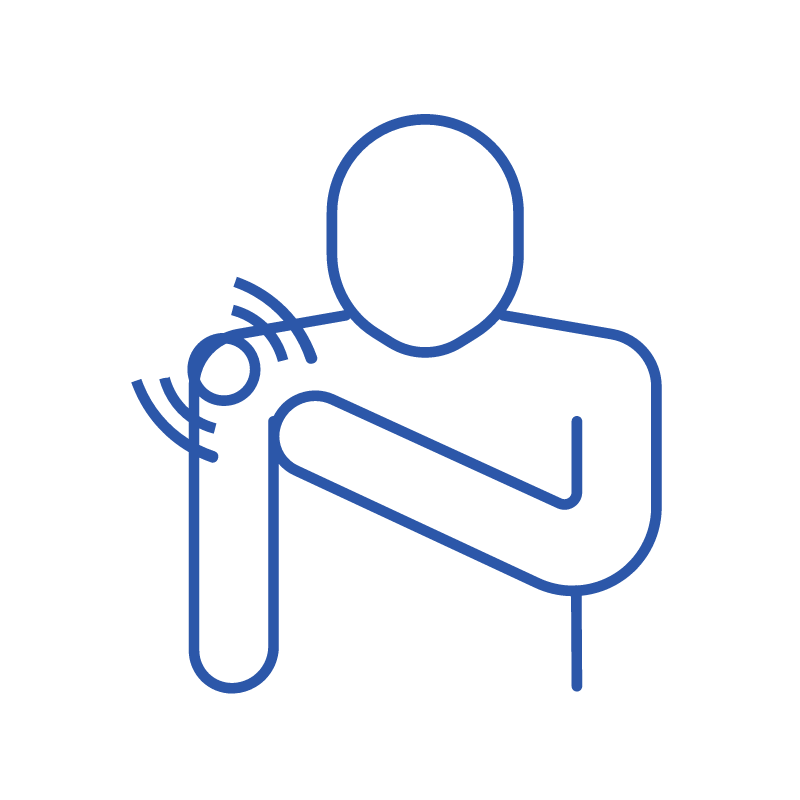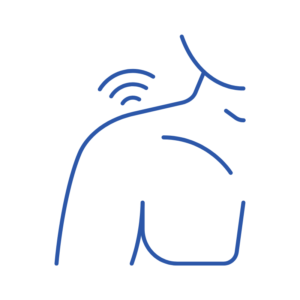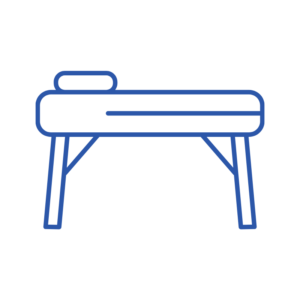Long Thoracic Nerve palsy or injury is a condition that is characterised by pain and reduced shoulder movement due to damage or injury to the long thoracic nerve.
At Vitalis Physiotherapy, our treatment of a long thoracic nerve palsy aims to:
Long Thoracic Nerve palsy or injury is a condition that is characterised by pain and reduced shoulder movement due to damage or injury to the long thoracic nerve.
At Vitalis Physiotherapy, our treatment of a long thoracic nerve palsy aims to:



Within the shoulder blades (scapula) is the Serratus anterior muscle. Responsible for a range of functions, including pivoting, rotating and protracting movements, it also offers stability to the scapula. The Long Thoracic Nerve (LTN) provides a link between the brain and the shoulder, running down the neck and under the armpit to the side of the chest wall. The role of the LTN is to control the motor functions of the Serratus Anterior muscle.
The long thoracic nerve is susceptible to damage and injury due to its long length, causing muscle weakness, reduced range of motion and physical deformity. If Serratus Anterior muscle weakness/dysfunction and related paralysis of the shoulder blade is caused by long thoracic nerve damage, it is typically diagnosed as Long Thoracic Nerve Palsy.

Causes of long thoracic nerve palsy can be a result of inflammation or compression of the nerve from overuse, traumatic injury or even surgical procedures.
LTN Palsy can result in the development of co-morbid conditions:


If you suspect you have symptoms of LTN damage and have pain in your shoulder blade, it is important to see a medical professional. You will likely be referred for imaging tests to determine the origin and extent of the injury or to rule out a differential diagnosis.
Physical therapy is highly beneficial in preventing further damage or overloading by retraining your body’s movement. At Vitalis Physiotherapy, we tailor a unique treatment plan to aid in your recovery through:
If the pain and reduced movement is severe, driving and strenuous activity should be avoided. Your physiotherapist may also advise heat or ice application, rest and if necessary, anti-inflammatory pain medication. Additionally, they might recommend for you to use neck support or a suitable pillow.
If you have long thoracic nerve palsy, or you’re looking for a ‘physiotherapist near me’, our physio’s at Vitalis Physiotherapy can assess your condition to tailor a unique rehabilitation plan to aid in your pain relief and recovery.
All you need to do is just give us a call on 0410 559 856 and request an initial appointment. Please let our friendly reception staff know the background and severity of your condition.
You can visit our FAQs for more information about appointments at Vitalis Physiotherapy.

Are you in pain caused by long thoracic nerve palsy? Contact Vitalis Physiotherapy now to book in your treatment.
Call our friendly team on 0410 559 856. We’d love to help.
3/58 Oldfield Road, Sinnamon Park Qld 4073